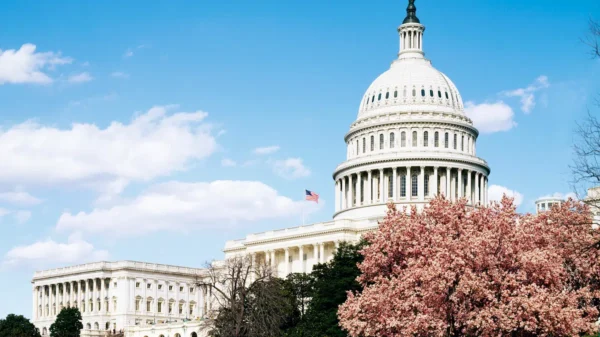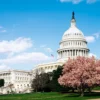President Donald Trump’s crypto working group called for new laws and immediate regulatory action in the cryptocurrency space as part of its first public report.
Released on Wednesday, it comes as part of the president’s campaign promise to be a “crypto president.” Wednesday’s findings reflect a dramatic shift from the previous administration, which cracked down on the industry. Former President Joe Biden’s regulators sued exchanges like Coinbase Global‘s (NASDAQ: COIN) and Binance. However, Trump’s SEC has dropped many of those cases.
The White House urged Congress to finalize legislation that would create a clear, national framework for digital assets. At the same time, the administration encouraged federal regulators to enable crypto trading under current law.
Trump formed the group shortly after taking office in January. The working group, led by Trump adviser Bo Hines, includes Treasury Secretary Scott Bessent, SEC Chair Paul Atkins, and OMB Director Russell Vought. Their report supports the Clarity Act, a House bill passed two weeks ago that outlines new rules for crypto markets. The Senate is currently debating its own version of the bill.
Furthermore, the White House wants lawmakers to expand the scope of the Clarity Act. Specifically, it recommends allowing crypto platforms to both trade and custody digital assets. It also proposes a tailored disclosure regime for crypto securities issuers. These changes, the administration says, would help the U.S. compete globally in the digital finance sector.
Read more: Bitmain intends to enter US market with Texas or Florida based facility
Read more: PayPal gives U.S. merchants access to over 100 cryptocurrencies
Tokenization is a key focus
Additionally, the report encourages the Securities and Exchange Commission (SEC) and the Commodity Futures Trading Commission (CFTC) to act immediately. It says both agencies already have the power to permit digital asset trading at the federal level. The administration wants regulators to introduce safe harbours and regulatory sandboxes, which would allow new crypto projects to launch with fewer barriers.
Tokenization is one area the report highlights.
It involves turning real-world assets, like stocks, real estate, or bank deposits, into blockchain-based tokens. Consequently, this process could open financial markets to more users and improve efficiency. Coinbase recently asked the SEC to approve blockchain-based stock offerings. The agency has yet to respond.
Meanwhile, the administration is calling for clearer agency roles. It argues the CFTC should oversee crypto spot markets, where digital assets are traded directly. This would help resolve a long-standing debate over whether crypto tokens are securities or commodities. The crypto industry has long argued that existing rules are outdated and poorly suited for digital assets.
Also, the report acknowledges decentralized finance, or DeFi, as a legitimate and innovative space. These platforms allow users to trade, lend, and borrow without intermediaries like banks or brokers. The administration believes DeFi deserves thoughtful regulation and not blanket restrictions.
Earlier this month, Trump signed a bill establishing federal rules for stablecoins, a type of cryptocurrency pegged to the U.S. dollar. That law was considered a major win for the crypto industry. However, the administration now views broader market structure legislation—like the Clarity Act—as the next critical step.
Read more: Hut 8 Corp and Trump family collaborate on new Bitcoin mining company
Read more: DeFi Technologies joins MVIS index and VanEck Digital ETF
Administration’s stance has raised concerns
Furthermore, the report includes recommendations on tax policy and capital markets. It aims to reduce uncertainty and encourage responsible innovation. These suggestions could shape future negotiations in Congress and affect how the industry evolves.
The administration’s pro-crypto stance has raised concerns. Trump has financial ties to the industry, including a stake in World Liberty Financial, a crypto platform. Additionally, members of his family have launched meme coins. Critics say this creates potential conflicts of interest. However, the White House denies any wrongdoing or ethical issues.
Accordingly, the report’s release marks a turning point in U.S. crypto policy. It reflects a new willingness by the federal government to embrace digital assets. Lawmakers will now weigh these recommendations as they finalize crypto legislation in the coming months.
The White House appears committed to moving quickly. Its officials believe the U.S. risks falling behind if it does not modernize its approach. Likewise, industry leaders argue that clear rules will help attract more investment and build trust with consumers.














